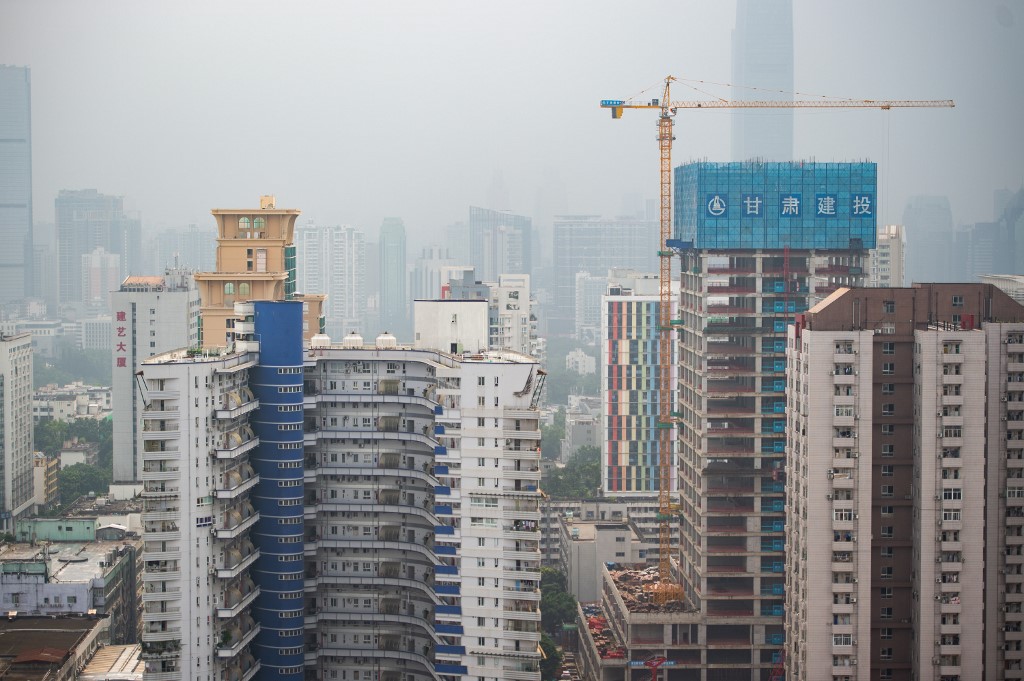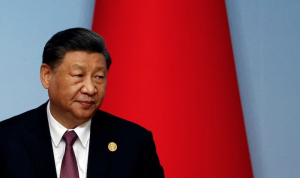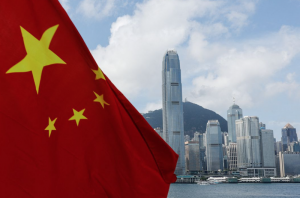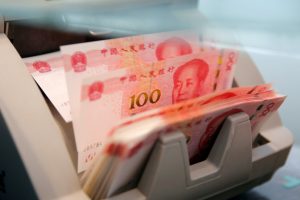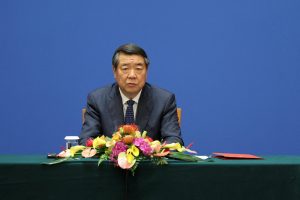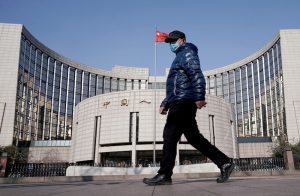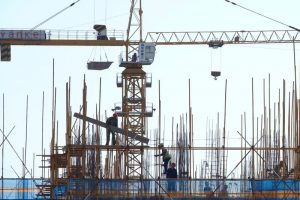China dollar property bonds are in deeper distress this year as a spate of negative news this week adds to jitters over the sector, says Singapore’s DBS Bank.
Without directly naming the company, DBS said in an emailed note on Friday that developer Country Garden’s failure to place a $300 million bond this week shows that offshore bond financing has become challenging even for large and better-rated names.
Reports that Chinese banks are curbing property loans to local government financing vehicles (LGFVs) is also “concerning’’ because it’s a larger and more consequential financing channel than dollar bonds, analysts Chang Wei Liang and Philip Wee said.
“These LGFVs have been stepping up to replace developers in land sales, thus indirectly supporting local government revenues,’’ the analysts said. “A cautious attitude amongst banks does not bode well for a recovery in land sales, or a pick-up in financing for M&A and asset acquisition.’’
The news comes amid reports that local government financing vehicles are also burdened with huge debts, which Goldman Sachs estimated to total around $8 trillion (around half national gross domestic product) at the end of 2020.
Income from land and home sales normally makes up a considerable chunk of local governments’ budgets, but these sources of revenue have dried up over the past six months amid the liquidity squeeze imposed on companies with excessive levels of debt.
A possible explanation for banks’ more cautious approach to property financing could be the slow but persistent year-on-year declines in Chinese property prices since August – “the longest stretch of price declines since early 2014”, according to DBS.
Property demand had also failed to pick up in December, despite some policy relaxation for mortgage lending, and there are also concerns over new property taxes.
Stronger Measures Needed
Given that it could take time for property sales to recover, DBS said stronger policy measures to spur lending would be needed to stave off a widening circle of developers enduring liquidity problems.
No details were included on which LGFVs are struggling to access loans, but areas in most distress in terms of exposure to multiple projects started by China Evergrande, the construction giant with $300 billion in liabilities, include Guangdong province and cities such as Shenzhen and Guangzhou.
Other developers in Guangdong province, including Country Garden, the biggest real estate conglomerate, are also facing financial woes.
Shenzhen – the tech hub at the centre of China’s ‘Silicon Valley’ – was the most expensive city to buy a home in mainland China previously, but the situation has turned around drastically.
A year ago it experienced a homebuying frenzy, but investors are now staying away from new residential projects, the South China Morning Post said. Shenzhen is less dependent on land and home sales than other first-tier cities, thanks to its burgeoning tech and trade sectors, which bring in most revenue for the city’s government.
Cities’ Dependent on Land Sales Revenue![]()
2020 data from China’s National Statistics Bureau and the Finance Ministry shows that land auction proceeds contribute a lion’s share of the annual income for numerous cities.
Shanghai, the most populous city, led in terms of land sale income that year. It sold 17.5 million square metres of land worth 295.2 billion yuan ($46.5 billion).
Hangzhou was next with land sales worth 257.4 billion yuan, then Guangzhou (256.4bn yuan) and Beijing, whose land sale premium was 195.7 billion yuan, fifth position nationwide. Land-starved Shenzhen was a laggard among first-tier cities, with land auction income of slightly over 100 billion yuan.
Guangzhou, capital of the southern Guangdong province and home to the debt-laden developer Evergrande, was the only first-tier city whose land sale income exceeded fiscal revenue from all other sources in 2020, with a land sales to non-land income ratio of 107%. Beijing, Shanghai and Shenzhen’s corresponding figures were 29%, 28% and 19% respectively.
Hangzhou, a lower-tier city and the capital of Zhejiang province, which is grappling with a big cluster of unfinished Evergrande projects, also hinged disproportionately on land sales with its ratio at 140%.
Cities in central and western China including Wuhan, Xi’an and Zhengzhou also had more land sale income than revenues from all other sources.
But the bigger question, perhaps, is will the central bank loosen the purse-strings further?
DBS Bank believes they will have to.
• Jim Pollard and Frank Chen
ALSO SEE:
China’s Next Debt Crisis Could Be Municipal Funding Vehicles
China to Fast-Track 102 Projects as Economy Slows – SCMP
Shimao Puts All Projects On Sale as China Property Woes Deepen
China Evergrande Default Triggers Brawl Over Local Assets




